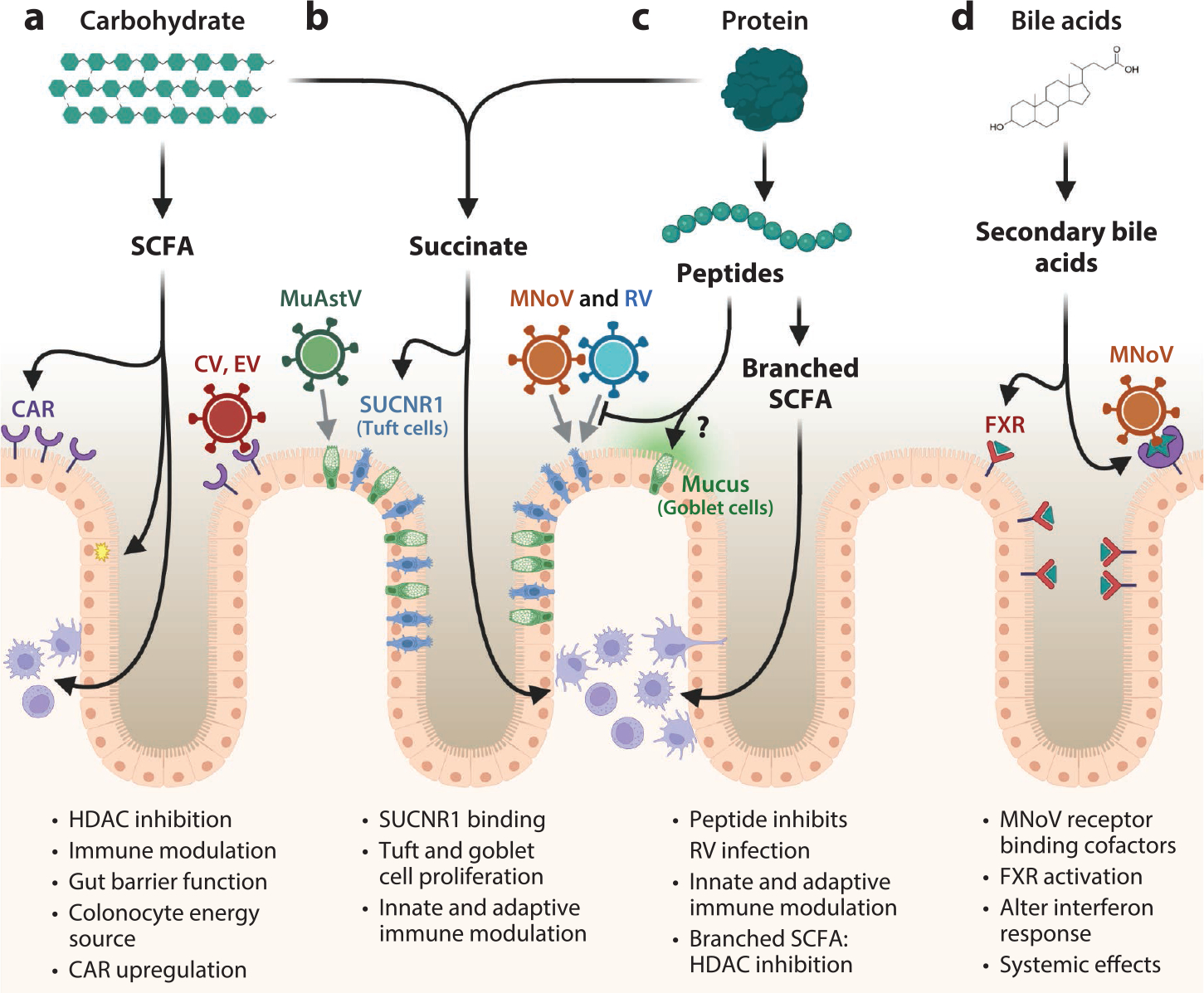Figure 4.

Interactions between microbial metabolites and viral infection. The by-products of microbial metabolism—(a) short chain fatty acid (SCFA), (b) succinate, (c) peptides and branched SCFA, and (d) secondary bile acids—exert strong effects on the gut environment and enteric viral infection. (a) Bacterial fermentation of carbohydrates produces several SCFA species, which are important energy sources for colonocytes and upregulate the coxsackievirus (CV) and adenovirus receptor (CAR) to enhance CV and enterovirus (EV) infection. (b) Succinate is produced from the fermentation of both amino acids and carbohydrates. Succinate binding to succinate receptor 1 (SUCNR1) causes goblet and tuft cell proliferation, which are host cells for murine astrovirus (muAstV), and murine norovirus (MNoV) and rotavirus (RV), respectively. (c) Protein fermentation and decarboxylation produce a variety of by-products that can influence host immune activities. SCFA, succinate, and branched SCFA are all potent histone deacetylase (HDAC) inhibitors and affect host gene expression on broad scales, including in important immune cell populations. (d) Gut-associated bacteria deconjugate and modify bile acids produced by the mammalian host, which serve as cofactors for the binding of MNoV and exert immunomodulatory effects through the farnesoid X receptor (FXR). Figure adapted from images created with BioRender.com.
